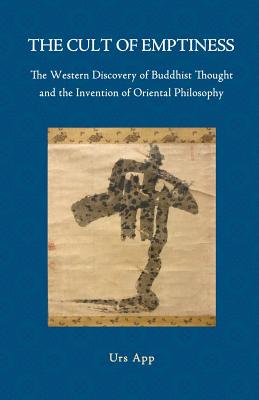The Cult of Emptiness. the Western Discovery of Buddhist Thought and the Invention of Oriental Philosophy

The Cult of Emptiness. the Western Discovery of Buddhist Thought and the Invention of Oriental Philosophy
Whereas the discovery by Europeans of the continents of our earth has been the subject of countless studies and its protagonists (such as Columbus) are universally known, research on the European discovery of our globe's "spiritual continents" - its religions and philosophies - is still in its infancy. The Christian West's discovery of Asia's largest religion and fount of philosophies, Buddhism, is a case in point: though it triggered one of the most significant and influential spiritual and cultural encounters in world history, even the most basic questions remain unanswered. What did Europeans first learn about Buddhist thought? When and where did this discovery take place and who was involved in it? What kind of Buddhism did they study, how did they understand or misunderstand it, and what were the repercussions of such discoveries in Europe? Based on a wide range of sources in European and Asian languages, Urs App -- the author of The Birth of Orientalism (University of Pennsylvania Press, 2010) -- identifies the protagonists of the first Western encounter with Buddhism and shows how their interpretation of Buddhist doctrines led to the invention of a single "Oriental philosophy" reigning from Egypt to Japan: an atheist philosophy anchored in "nothingness" and "emptiness" that was revealed by the Buddha to his closest disciples on his deathbed. Leading thinkers of the Enlightenment came to regard this philosophy as the most ancient form of atheism, the ancestor of Greek philosophy, the precursor of Spinoza, and the fount of mysticism as well as countless heresies including monism, pantheism, quietism, and gnosticism.
PRP: 288.51 Lei
Acesta este Prețul Recomandat de Producător. Prețul de vânzare al produsului este afișat mai jos.
259.66Lei
259.66Lei
288.51 LeiLivrare in 2-4 saptamani
Descrierea produsului
Whereas the discovery by Europeans of the continents of our earth has been the subject of countless studies and its protagonists (such as Columbus) are universally known, research on the European discovery of our globe's "spiritual continents" - its religions and philosophies - is still in its infancy. The Christian West's discovery of Asia's largest religion and fount of philosophies, Buddhism, is a case in point: though it triggered one of the most significant and influential spiritual and cultural encounters in world history, even the most basic questions remain unanswered. What did Europeans first learn about Buddhist thought? When and where did this discovery take place and who was involved in it? What kind of Buddhism did they study, how did they understand or misunderstand it, and what were the repercussions of such discoveries in Europe? Based on a wide range of sources in European and Asian languages, Urs App -- the author of The Birth of Orientalism (University of Pennsylvania Press, 2010) -- identifies the protagonists of the first Western encounter with Buddhism and shows how their interpretation of Buddhist doctrines led to the invention of a single "Oriental philosophy" reigning from Egypt to Japan: an atheist philosophy anchored in "nothingness" and "emptiness" that was revealed by the Buddha to his closest disciples on his deathbed. Leading thinkers of the Enlightenment came to regard this philosophy as the most ancient form of atheism, the ancestor of Greek philosophy, the precursor of Spinoza, and the fount of mysticism as well as countless heresies including monism, pantheism, quietism, and gnosticism.
Detaliile produsului













